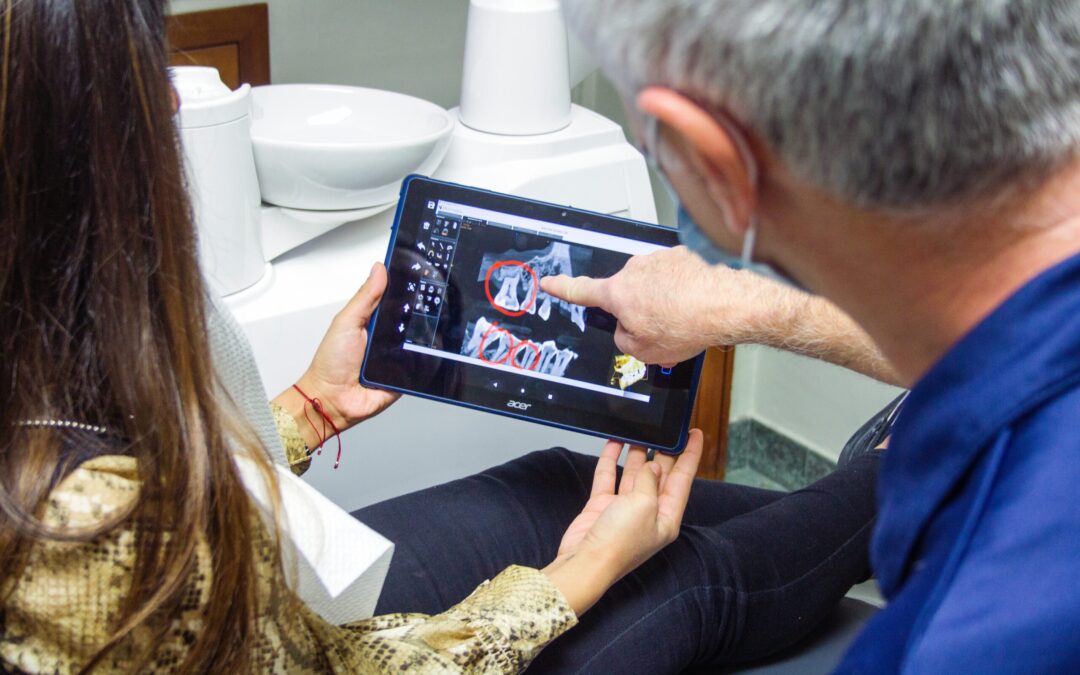So your family dentist in Grande Prairie has recommended that your wisdom teeth come out and you’re looking for a second opinion. When your wisdom teeth aren’t causing you any pain it can be difficult to understand why they need to come out.
While extracting wisdom teeth isn’t always necessary, it is often recommended, especially for dental patients heading into adulthood. And for wisdom teeth that are causing issues, they need to come out as soon as possible. The reasons are mostly preventative and ultimately, the majority of the adult population will likely require the removal of one to all of their wisdom teeth.
This article will explore the reasons why and what to expect when you’re having your wisdom teeth removed.
What Are Wisdom Teeth?
Wisdom teeth are the widest molars, also referred to as third molars. They usually erupt between the ages of 17 and 25. Their late arrival gives them their name, erupting between ages 17 and 25. Your full set of 32 adult teeth is completed by two sets of wisdom teeth, two on each side of the back of your mouth, top and bottom. However, not every adult gets a complete set of wisdom teeth, which is perfectly normal.
When Should You Extract Wisdom Teeth?
There are two ways to think about wisdom teeth removal. The first is to address a symptom, and the second is a preventative measure, even in the absence of symptoms.
Symptoms and Issues Associated With Wisdom Teeth
When wisdom teeth do cause issues, they are often noticeable. When your Grande Prairie dentist takes radiographs or X-rays, your wisdom teeth are one of the main areas of observation and interest. If these symptoms arise, especially in your late teens or early 20s, and the wisdom teeth appear impacted, then extraction is likely the best option.
Here are some symptoms that can arise with wisdom teeth eruption:
Damage to Other Teeth or the Jaw
Wisdom teeth can become impacted, meaning they are growing at an incorrect angle, pressing against neighbouring teeth. This can occur before and after the wisdom teeth have erupted. Impacted wisdom teeth can cause damage to these neighbouring teeth and crowding along the jawline. Over time, teeth can become crooked under this pressure, possibly causing your bite to become misaligned. Cysts can also form around the wisdom teeth, which can cause damage and bone loss in your jaw and damage to nerves.
Inflammation-Related Issues
Wisdom tooth eruption can create an inflamed environment, leading to pain and sensitivity in the gums and jaw. Swelling in the gums can make it difficult to clean brush and floss normally. And if this swelling persists, these hard-to-clean areas can cause bacteria to grow and cavities to form. The inflammation can lead to sinus issues like pressure, pain, and congestion.
Preventative Reasons For Extracting Wisdom Teeth
Even in the absence of painful symptoms, wisdom teeth can still be causing problems. Wisdom teeth can become impacted, or stuck. When they grow in this way, it prevents them from breaking through your jaw and into your mouth. Impacted wisdom teeth can create misalignment and crowding over time.
There is also the possibility that your mouth isn’t big enough to make adequate room for your wisdom teeth to grow in properly without causing issues for other teeth.
Aging causes the bones in your mouth to harden, which makes it harder to extract teeth. This is why dentists find it necessary to remove problematic wisdom teeth as soon as possible.
The longer you wait, the more issues could arise during surgery, such as fractured teeth, heavy bleeding, minor loss of movement in the jaw, and severe numbness. These issues can persist well after surgery and can even stay with you for life.
Wisdom Teeth Extractions: What to Expect
Although wisdom teeth extraction is technically oral surgery, there is nothing to worry about. This is a safe and common procedure that can be done at the dental office in one day. Whether it’s for symptomatic or preventative reasons, once your wisdom teeth are scheduled for extraction, here’s what to expect.
Preparing for Oral Surgery
Since the issues with wisdom teeth can vary, the surgery plan can vary, too. Your Grande Prairie dentist will give you proper instructions to prepare and heal.
In general, a form of anesthetic, usually local, will be used to numb the pain. Full sedation is sometimes necessary, depending on the case.
You may be asked to fast before and after the procedure. It is usually recommended that you schedule the following day off to allow for healing and recovery. Proper pain medication will be prescribed to help you manage any pain or discomfort you experience.
It is normal to experience some bleeding following wisdom teeth extraction. Instead of returning to brushing and flossing immediately, you will need to gently rinse your mouth with lukewarm salt water every 2 hours to assist with healing and gentle cleansing.
Visit Your Family Dentist in Grande Prairie For Wisdom Teeth Extraction
Having your wisdom teeth extracted is a common procedure. Here at Boisson Dental Group, we have been removing wisdom teeth for close to 30 years. We are passionate about providing superior dental care to the lovely people of Grande Prairie.
You can learn more about wisdom teeth extractions on our site:
https://www.boissondental.ca/grande-prairie-dental-service/oral-surgery/wisdom-teeth-extractions/
If your wisdom teeth are giving you grief, get in touch and we’ll take care of the rest!
☎️ 587-771-7668
info@boissondental.ca

